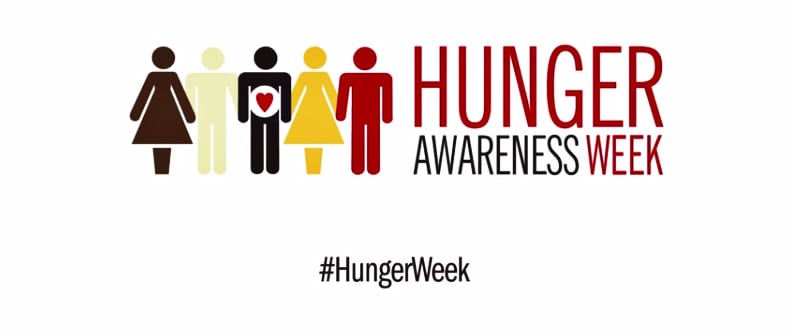Hunger Awareness Week was created to provide food banks with an opportunity to educate Canadians about the reality of hunger in our country. Did you know that food bank usage has increased over the last 7 years?
This year, through an edgy new campaign, food banks are asking foodies to stop obsessing about their meals, and instead, turn their attention to those in need using the handle @CanadianHunger. You can also follow the convo at #TweetsofHunger.
In an effort to better educate ourselves about the realities of hunger in Canada, we sat down with Katharine Schmidt, Executive Director of Food Banks Canada.
How many Canadians use a food bank regularly?
KS: Close to 850,000 people are helped by a food bank each month. This is a growth of 25% since the 2008 recession.
How many single moms in Toronto rely on a food bank?
KS: Our annual research study reports on food bank usage at the national and provincial level. We do know that nationally 48% of women are helped and of the households helped approximately 23% are single-parent families.
What are the best foods to donate to our local food bank?
KS: Food banks are looking for all types of nutritious foods.
For non perishable items some of the most sought after are: peanut butter and meat alternatives, canned vegetables, pastas and sauces, soups and stews.
Many food banks are looking for perishable items as well such as frozen meats, fresh produce, dairy products and eggs. It’s best to check with local food banks to find out if they are able to accept this type of product.
What is the goal of the #TweetsofHunger campaign?
KS: To bring light to the issue of hunger in this country, Food Banks Canada is taking a new approach during Hunger Awareness Week. During Hunger Awareness Week, we will be tweeting as the voice of hunger using the handle, @CanadianHunger and with #TweetsofHunger #HungerWeek. We will also be listening and responding to food-obsessed Canadians on Twitter and interacting with some of them to bring attention to the issue.
We also be sharing our video. We’re proud of this campaign. It’s a bit edgy, and it is an exciting new approach for us.
As the Executive Director of Food Banks Canada, what are your main responsibilities?
KS: My role is to work with and support a diverse network of provincial food bank associations and food banks across the country to find short term solutions to hunger such as acquiring and sharing quality food, raising and sharing funds that can be used to support food bank programs and operations (food banks need to be able to keep their lights on and put gas in the trucks) as well as finding long term solutions to hunger. We develop national policy solutions that we propose to government and believe can have a significant impact on reducing the need for food banks.
What are the biggest challenges you face?
KS: Our goal is to alleviate hunger today and reduce it in the long term. We are always looking for ways to help more people with more food. In the long term we want to see the need for food banks to decline and this means working with governments to implement policy change that will help people out of poverty.
Should Canadians stop posting pics of their food during Hunger Awareness Week? Or what should we do?
KS: We are just asking Canadians to pause in their day to learn about hunger. We hope they engage in our campaign by sharing our video and messages.
What are some Food Bank success stories you can share with us?
KS: There are many terrific stories coming out of food banks. We hear about community kitchen programs that help to educate and train kids and adults on how to shop, prepare and cook nutritious meals; there are food banks that have started community gardens to enable them to access fresh produce when it is in season; we know of many food banks that organize job training programs that will help provide new skills and allow people to find work; and many food banks direct individuals to other services and programs like health and housing.
Food banks also organize thousands of events that help to raise awareness in their communities and raise much needed food through food drives.



 Follow Us On Instagram
Follow Us On Instagram
